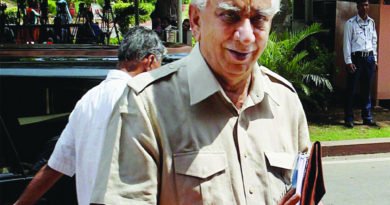Push Security Council reforms
The UN Security Council must be representative of the new world order and effective in dealing with the problems confronting the world today
While the world is still struggling to recover from the worst effects of the Covid pandemic, the continuing war in Ukraine has once more demonstrated the inability of the United Nations Organisation to prevent the dangerous situations that confront the world at one time or another. The war has rather confirmed the ineffectiveness of the UN Security Council to prevent wars and conflicts. A major factor responsible is the lack of full representative character of the council. This calls for urgent reforms to prevent wars, particularly during present unstable times with highly disturbed geopolitical conditions.
Tracing the history of institutions established to streamline the ever-evolving geopolitical development of the world, the first enlightened attempt to prevent wars was the establishment of the League of Nations in 1919 after World War I. But its failure resulted in the Second World War which ended only after atom bombs were used. This awoke the world to the destructive potential of atomic weapons even at that stage and aided by a strong desire for world peace, the present world body United Nations Organisation (UNO) was formed after World War II ended in 1945. Among the host of other important functions, it was mandated to prevent and eliminate the recurrence of wars through dialogue, discussion, and diplomacy.
The Organisation has been beneficial to mankind in many ways, but looking back at its record during the last seventy-seven years, there is not much to feel proud about. Mostly because of cold war politics and its failure to take bold united action, It could not prevent local and regional wars in the Korean peninsula, Asia, Africa, and even in Europe and Latin America. It could not stop Chinese aggression against India in 1962 and the Cuban missile crisis between the then Soviet Union and the USA.
Apart from cold war politics, a glaring example of lack of its full representative character has been India with over 1.40 billion population constituting about twenty per cent of the total world population but with no permanent representation in the security council. This is despite the fact that in June last year out of 192 votes cast in the UN General Assembly,184 countries voted in favour of India for a two-year term of non-permanent membership of UN security council. In his address to the 77th UN General Assembly on 24th September, External Affairs Minister of India Jai Shankar tore into this anomalous situation saying “reforming the security council is needed because it is currently anachronistic and ineffective and deeply unfair, denying entire continents and regions voice in the forum that deliberates their future”. He called for serious negotiations on the matter to be decisively addressed. He pointed out that during these troubled times the world must listen to more voices of reason.
The dire need for UN Security Council reforms and restructuring the United Nations is felt more strongly all over the world even at the grassroots level and in other fora. Over two hundred civil society groups have called for a world citizens’ initiative. We the people campaign for a UN world citizens initiative, a joint initiative of ‘Democracy without borders, ‘Civicus, and democracy international’ has been pleading for the same.
Globalization has not only brought the whole world closer but also made it more connected. There are now far greater possibilities of and awareness about the evolution and development of human civilization. This laudable human endeavour requires united action to face the threats facing mankind. The threats include pandemics, stockpiles of nuclear weapons, deadly biological weapons, climate change, natural disasters, terrorism, loss of control over artificial intelligence, serious imbalances in international trade in a globalised world, influence, intelligence, greed for power and a host of other threats.
World-renowned Physicist Stephen Hawking pleaded for the establishment of some form of world government as he apprehended that the aggressive instincts of humans could lead to the destruction of humankind and hoped that such a government could prevent impending doom. There is a greater realisation all over the world now about threats facing mankind. While urgent reforms of the UN security council is the primary need of the time, the fact that the world requires a democratic global government and a world parliament can no longer be overlooked. After deeply restructuring the present world body, contours for such an institution could be laid for which member states will have to shed some shades of their sovereignty. Challenges facing mankind as also matters of economic and financial governance can be dealt with in a far better way by a global parliament. Such an institution will strengthen democracy, justice, and equity throughout the world and help in curbing fundamentalist and radical ideologies. Proper attention to all threats facing mankind could ensure the safety of life on earth.
(The writer is a retired IIS Officer, and free
Source: The Pioneer News



